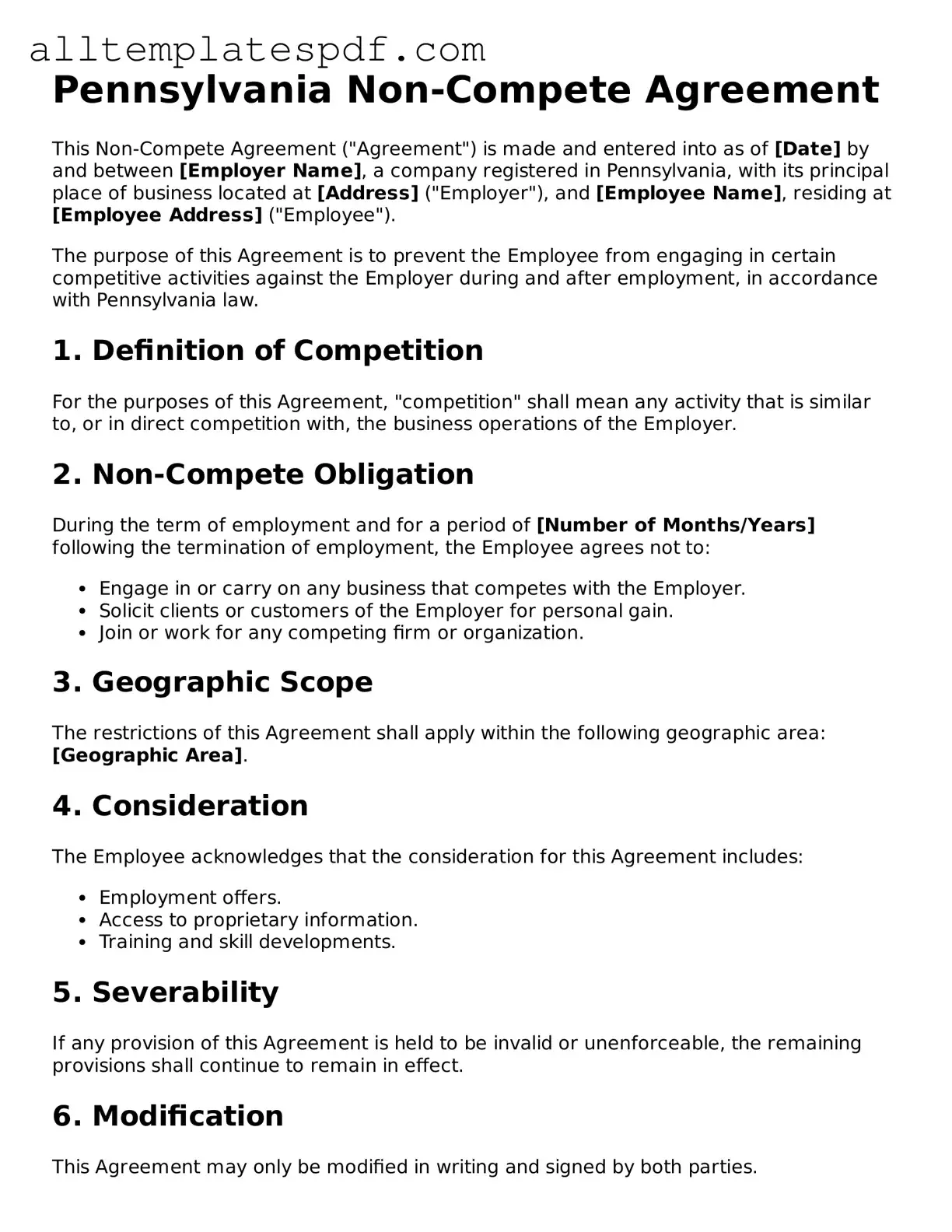Blank Non-compete Agreement Template for the State of Pennsylvania
A Pennsylvania Non-compete Agreement form is a legal document that restricts an employee from working for competitors or starting a competing business for a specified period after leaving their job. This form helps protect a company's confidential information and business interests. If you need to fill out this form, click the button below.
Open Editor

Blank Non-compete Agreement Template for the State of Pennsylvania
Open Editor
Fast and easy form completion
Complete Non-compete Agreement digitally — fast and easy.
Open Editor
or
↓ Non-compete Agreement PDF Form
